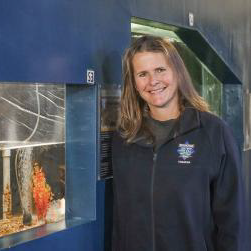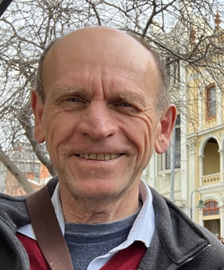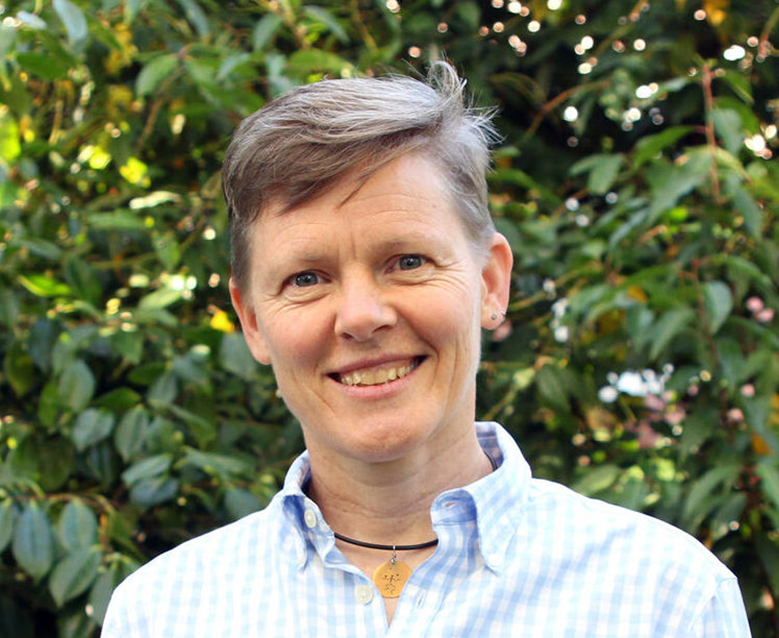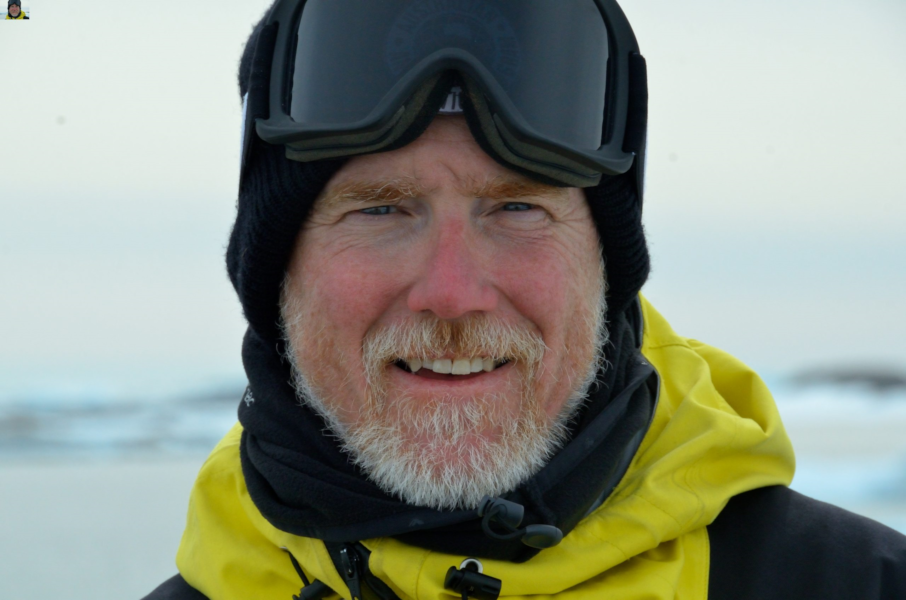From Seahorses to Handfish: a Tasmanian aquaculture story
The Northern Branch of The Royal Society of Tasmania invites you to our next public lecture by Mrs Rachelle Hawkins on 23 March 2025, in the Meeting Room, Queen Victoria Museum and Art Gallery (QVMAG) at Inveresk, Launceston.
All RST members, their guests, and the public are welcome.
Admission is free for RST members. Admission is $6 for the general public, admission is $4 for students, QVMAG or TMAG Friends, and members of the Launceston Historical Society.
When: 1:30 pm Sunday 23 March 2025, following the AGM being held at 1:15 pm.
Where: Meeting Room, QVMAG at Inveresk.
From humble beginnings in an empty warehouse on a wharf, Seahorse Australia began as a controversial pilot project, aiming to commercialise the pioneering research carried out at Launceston’s Key Centre for Aquaculture. 27 years later, the business has grown to become not only a respected supplier of seahorses, but also a popular tourist attraction. The jewel in the crown, however, is the exciting work being conducted in partnership with CSIRO and UTAS to breed and research the critically endangered handfish and release them into the wild.

Rachelle Hawkins grew up in rural NSW where she completed a BSc at Newcastle University before getting married. Rachelle and Craig moved to Launceston where Rachelle studied a graduate diploma in Aquaculture. On graduating, she was fortunate to become the first senior biologist at the new seahorse farm under the tutelage of Em Prof Nigel Forteath when the farm opened in 1998. Rachelle and Craig purchased the seahorse farm when it came up for sale in 2002, and purchased Seahorse World in 2010.
Generously supported by

Tasmania Reads 2025
WHAT’S UP PUFFERFISH?!
Detective Inspector Franz Heineken and the mysterious Danish connection
The Royal Society of Tasmania invites you to its March 2025 public lecture in Hobart by guest speaker and Tasmanian author David Owen. All RST members, their guests, and the public are welcome.
This event is hosted by The Royal Society of Tasmania to celebrate Tasmania Reads 2025.
Where: Royal Society of Tasmania Lecture Room, Customs House, 19 Davey St, Hobart on Wednesday 26 March, 2025, for the talk.
Time: 10:30 – 11:30 a.m.
Click here to register as seating is limited.
David will speak about three forthcoming novels in this popular Fullers Publishing detective series. Set in Tasmania, this is Australia’s longest-running police procedural series: cunning island crimes which ultimately are no match for the unhurried but razor-sharp Detective Inspector, Tassie’s longtime Dutch import. The Pufferfish novels are fast-paced with a literary touch, taking the reader all over the Island State and often beyond.

David is the author of 19 books of fiction and nonfiction, including updated new editions in the Allen & Unwin natural history series – Tasmanian Tiger: The tragic story of the thylacine, and Tasmanian Devil: A deadly tale of survival, both co-authored with David Pemberton. In 2021 he co-authored with Kate Warner AC, former Governor of Tasmania, the two-volume Government House Tasmania: A Remarkable Story.
Notice of the 2025 RST Annual General Meeting
The Annual General meeting of The Royal Society of Tasmania will be held on Thursday 6 March 2025, at 4:00 pm, at the Royal Yacht Club of Tasmania, Marieville Esplanade, Sandy Bay, Hobart.
All RST members and guests are welcome. Admission is free.
Please join us for a complimentary drink before the formalities begin.
Bookings can be made using this link.

Following the AGM Prof Nathan Bindoff will present a lecture titled ‘The Role of the Southern Ocean and Antarctica in the Climate System’.
Annual General Meeting business summary
- Election of 2025 Office Bearers
- Presentation of the 2024 Annual Report
- Appointment of Auditor
Nominations for positions on The Royal Society of Tasmania Council are now open for election at the Annual General Meeting on 6 March.
The following positions are open for nomination:
- Three Council members (3-year terms)
- Early Career Researcher (3 years)
- Honorary Secretary (1 year; may be re-elected)
- Honorary Treasurer (1 year; may be re-elected)
- President (1 year; may be re-elected for 2 years maximum)
- Vice President (1 year; may be re-elected for 2 years maximum)
Nominations must be received by the Returning Officer, Professor Jocelyn McPhie, by midnight Thursday 27 February 2025.
The nomination form can be downloaded using this link and is also available from the RST Office which is open Thursdays from 9:00 am to 12 noon.
The completed and signed form may be returned by mail to:
The Returning Officer
c/- The Royal Society of Tasmania
GPO Box 1166
Hobart TAS 7001
Or delivered to the RST office at 19 Davey Street
Or a signed and scanned copy may be emailed to admin@rst.org.au.
For further information, please contact the Honorary Secretary at secretary@rst.org.au.
The Royal Society of Tasmania 2024 Christmas Dinner and Lecture
Members and guests are invited to join us for the annual Christmas Dinner and Lecture.
Wednesday 4 December. Note a new venue: The Pickled Pear at The University Club, 38a Dobson Road, UTAS, located opposite the Engineering Faculty – ample parking, disability parking and access.
The formalities and meal commence at 6.00 pm, but please arrive earlier for a convivial drink and chat.
Please fill in and return the acceptance form to admin@rst.org.au before 13 November. Download the acceptance form using this link. Cost is $75 per person.
The lecture to be given by Dr Hanne Nielsen, Senior Lecturer in Antarctic Law and Governance, UTAS, is entitled:
“Antarctica and Popular Culture”
Dr Hanne Nielsen is known for her research on representations of Antarctica in culture and the arts, particularly in literature and media. She has a background in Antarctic Studies and has explored how Antarctica is depicted in various narratives, focusing on the intersection of polar history, gender, and cultural studies.

Dr Nielsen has also been an advocate for women in Antarctic research, highlighting the roles of women in polar expeditions and science. Her work contributes to understanding how perceptions of Antarctica have shaped public and scientific discourses, especially in relation to environmental change and geopolitics.
What Makes a Good Timber Floor?
The Northern Branch of The Royal Society of Tasmania invites you to our next lecture on Sunday 24 November 2024, in the Meeting Room, Queen Victoria Museum and Art Gallery (QVMAG) at Inveresk, Launceston.
The presentation will discuss what characteristics make for an acceptable floor and how this then relates to the introduction of a new timber resource that may be lower in density than current products, customs and standards currently recommended.
All RST members, their guests, and the public are welcome.
Admission is free for RST members. Admission is $6 for the general public, admission is $4 for students, QVMAG or TMAG Friends, and members of the Launceston Historical Society.
Time: 1.30pm.
Where: Meeting Room, QVMAG at Inveresk.
A flyer suitable for printing can be downloaded here.
This presentation will report on research which explored the use of Tasmanian plantation-grown Eucalyptus nitens timber in engineered flooring. Prototypes were developed and compared to existing products for domestic/light commercial applications.

The presentation will discuss what characteristics make for an acceptable floor and how this then relates to the introduction of a new timber resource that may be lower in density than current products, customs and standards currently recommended.

Dr Kuluni Millaniyage has a diverse background in wood science and forestry research-led practice in both academia and industry.
Dr Millaniyage is an experienced researcher and innovative timber products specialist with a history of developing novel engineered timber products from plantation timber. She has a background in forestry, wood and environmental science, analysis of standards and policies, social aspects and perceptions of timber use and product development.
Generously supported by

Climate Disinformation: Strategies to Defeat Decades of Denial and Deceit
The Royal Society of Tasmania invites you to its November 2024 Public Lecture by guest speaker Dr. Mel Fitzpatrick. All RST members, their guests, and the public are welcome.
Please register your interest using this link.
Where: Geology Lecture Theatre, UTAS, Sandy Bay Campus on Sunday 3 November, 2024.
Time: 3.30pm for pre-lecture drinks, 4pm for the lecture.
Dr. Mel Fitzpatrick has been at the forefront of climate science, activism, and education since Australia’s commitment to the United Nations Framework Convention on Climate Change in 1992. Over the decades, Mel has witnessed firsthand how disinformation, denial, and deception have obstructed progress on climate action, both within Australia and globally.
In this talk, Mel will shed light on the key players behind these efforts, their tactics, and how we can better inoculate ourselves and others from the pervasive disinformation that threatens meaningful change.

Dr Mel Fitzpatrick is a climate scientist and educator, who over the last two decades has concentrated on effective communication of climate science to both policymakers and the general public.
A specialist in polar and alpine research, Mel has worked for the Australian Antarctic Program, the US Antarctic Program, and in the Department of Earth and Space Sciences at the University of Washington in Seattle.
Mel was an expert reviewer for the Intergovernmental Panel on Climate Change, contributing to the reports in both 2001 and 2007, and also worked for six years at the Union of Concerned Scientists as part of a small team developing a series of climate impact reports used for outreach and education in coastal and mountain areas.
Mel now works in the education sector, contributes as a member of the City of Hobart’s Climate Futures Portfolio Committee and continues to be passionate about bridging science and policy.
View a recording of the lecture by Dr Katie Marx – October 2024
This talk was part of the 2024 PhD Showcase held on 6 October 2024.
Katie Marx is a Postdoctoral Research Fellow in the School of Humanities, College of Arts, Law and Education. Her doctoral research focused on the concept of place attachment in Hobart, an Antarctic gateway city. From this, she has built an interest in exploring how we can support members of the public to form a meaningful relationship with remote places (such as Antarctica) that they themselves may never visit. Katie has a professional background in community development; a skillset that she draws upon when examining methods for increasing public participation in the conservation of the polar regions.
Along with Professor Elizabeth Leane, Katie is the current co-lead of the Public Engagement with Antarctic Research Action Group within the international Scientific Committee on Antarctic Research. She has tutored in a range of subjects, including environmental communication and marine and Antarctic governance, and she tends to spend her summers working as a historian and guide with tour operators on the Antarctic peninsula.
In the face of mounting environmental and political challenges, it is more important than ever for members of the public to understand and care about Antarctica. Little is known, however, about the types of strategies that work (or don’t work) when it comes to engaging the public in Antarctic matters. In this talk, Dr Katie Marx shares the findings from her PhD research, which used Hobart as a case study to explore what the Antarctic sector can do to support community members to develop a stronger relationship with the far south.
View a recording of the lecture by Dr Matthew Cracknell – Sep 2024
Dr Matthew Cracknell is a Senior Lecturer in Geodata Analytics for the Discipline of Earth Sciences and the Centre for Ore Deposit and Earth Sciences (CODES) at UTas. Prior to his current position, he held many short-term research and teaching positions at CODES, the Antarctic Climate & Ecosystems Cooperative Research Centre (ACE CRC) and the School of Humanities, University of Tasmania. He also currently leads the CODES Research Program for Geophysics and computational geosciences.
Matthew received a BSc (Hons) in geophysics in 2009 and a PhD in Computational Geophysics in 2014, both from UTas. Before entering academia he was employed as a consultant geoscientist and GIS analyst for a variety of public and private bodies.
The 2024 PhD Showcase
Join us for an exciting PhD Showcase, where emerging experts will present their research and innovative ideas. This event highlights the work of future leaders in academia, offering cutting-edge insights into a wide range of fields. All RST members, their guests, and the public are welcome.
Where: Geology Lecture Theatre, UTAS, Sandy Bay Campus on Sunday 6 October 2024.
Time: 3.30pm for pre-lecture drinks, 4pm for the lecture.
To assist with organization, please use this link to ensure a seat.
Our 2023 PhD medallist, Dr Tobias Stål will start proceedings and be followed by postdoctoral Antarctic scholar, Dr Katie Marx, discuss her current research projects.
Dr Tobias Stål – Deep Antarctica-Exploring Earth Under the Ice
Tobias Stål is a geophysicist with backgrounds in geology, art, and engineering. He is currently a research fellow at the Australian Centre for Excellence in Antarctic Science at the University of Tasmania. He focuses on innovative approaches to understanding our planet using computational methods and information theory.

